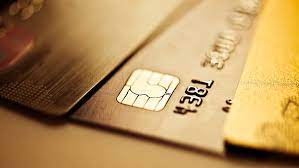Random $1 Charges On My Credit Card
Jan 14, 2023 By Triston Martin
If you have been examining credit card accounts online, you may have periodically spotted a random $1 charge amid your list of transactions. This charge is often marked as "pending," although it may be anything.
Before making higher charges, some con artists would take a test run on their victims' credit cards by charging a single dollar to see if anybody notices before they make larger charges. However, a fee of one dollar is often acceptable, at least in the short term.
Where Do The Costs Of One Dollar Originally Come From?
If you check your list of pending purchases, you will probably find that random charge for $1 pushes right up against charge from gas station, hotel, or rental car business. This is something that you will notice if you take a look at your list. This is because $1 charge is temporary preauthorization from credit card provider. This allows the retailer to charge your card for the whole amount when you make your final transaction. If you preauthorize your credit card for $1, the card issuer won't need to put a greater hold on your account.
When the total amount you've spent at a motel or gas station is no longer outstanding, the $1 charge will be removed from your account. The charge of $1 that was previously preauthorized has been removed, and it will not appear on your final bill.
Why Is It That It's Only Available With Specific Kinds Of Purchases?
While some types of businesses do not need preauthorization, others do. When they take your credit card, certain merchants, most often hotels, petrol stations, and vehicle rental agencies may still need to learn the whole amount of the item you want to buy.
When you first swipe your card at a petrol pump, the station needs to know how much it will cost to fill your tank since it still needs the information. Because of this, the retailer will preauthorize your card before you purchase so that they may have a reasonable assurance that you won't charge more than your credit limit permits.
When Should I Be Concerned About A Charge Of One Dollar?

When you make your last purchase with your credit card, the $1 transaction fee charged to your account when you rented a vehicle or stayed at a hotel should be removed immediately from your account. You shouldn't see the $1 pending charge any longer once the final charge has been processed and is no longer pending.
But if you discover that the dollar doesn't vanish as expected, or if you see charges for one dollar appearing on your final credit card bill, it's time to contact your financial institution and find out what's happening.
Reporting Unauthorized Credit Card Charges

Call the credit card company at the number shown on the back of your card as soon as you discover a charge made to your account without your permission. If you need help locating your credit card and need a written record of the phone number, you may look it up on your most recent billing statement or the website of the company that issued your card.
Under no circumstances should you provide information to anybody who contacts you by phone or email claiming to be your credit card issuer, regardless of how credible they may seem. Phishing is a common tactic that identity thieves employ to get access to sensitive information such as credit card numbers and personal details.
The three-digit security number that is printed on the back of your credit card, as well as your billing zip code, are two pieces of information that are often obtained via the usage of this fraud. Always start a conversation with your credit card issuer by calling a verified phone number that may be found on your credit card, on your monthly statement, or the legitimate website of your credit card issuer.
Call the credit card issuer as soon as you obtain the proper number for them to report the charges that were made without your permission. In most cases, they will close the hacked account and provide a new credit card to you with a different account number.
A dispute letter detailing the illegal transactions made to your credit card should be sent as a follow-up if you want to ensure that your legal rights are preserved. Refer to the call you made, and be sure to mention the name of the person in the customer service department with whom you talked.
You may be required to make an initial attempt to address the illegal transaction with the merchant by some credit card issuers. You can often determine the merchant by analyzing the bill associated with your credit card. However, criminals may sometimes fake merchant information to make it look like charges were made with a certain merchant when they were not.








